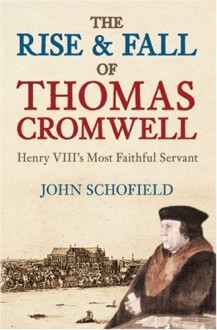
I've seen many people mentioning that this book was dry and I can't agree. It might be the fact that I am used to reading historical theory books or that my definition of dry is closer to Suimption's, exquisitely detailed and masterfully researched, Hundred Years War series, but I found this book lively and easy to read.
It is true that Schofield reaches some hagiographic moments in his defence of Cromwell, but I think that is to be expected when writing about a man so often slandered with such little reason. Like others, I've came to this books after reading Wolf Hall and Bring Up the Bodies and I have always liked Thomas Cromwell, so I am of course biased. But we all are, in the end, and I think Schofield's description of CRomwell's last months show that he was, indeed, capable of doing morally reprehensible things.
Two things I loved about this books. The first was the clear explanation on Lutheran theology which, being raised in a Catholic family and a Catholic country and having attended a Catholic university was never too clear for me. The second is the abundance of sources and reference works. Too often one finds history books and biographies that make statements without citing their sources, which is frustrating at best and bad research at worst. But Schofield's book has a great bibliography section and his statements are backed up by evidence; a gift for those of us who want to keep reading on the subject.
An interesting exercise was going back to Wolf Hall and Bring Up The Bodies to compare and contrast how Schofield and Mantel tell the same events and Schofield's influence is pretty clear, something I really enjoyed and allowed me to understand some parts of the novels better.
All in all, I loved the book and I'll be re-reading it often.

 Log in with Facebook
Log in with Facebook 





